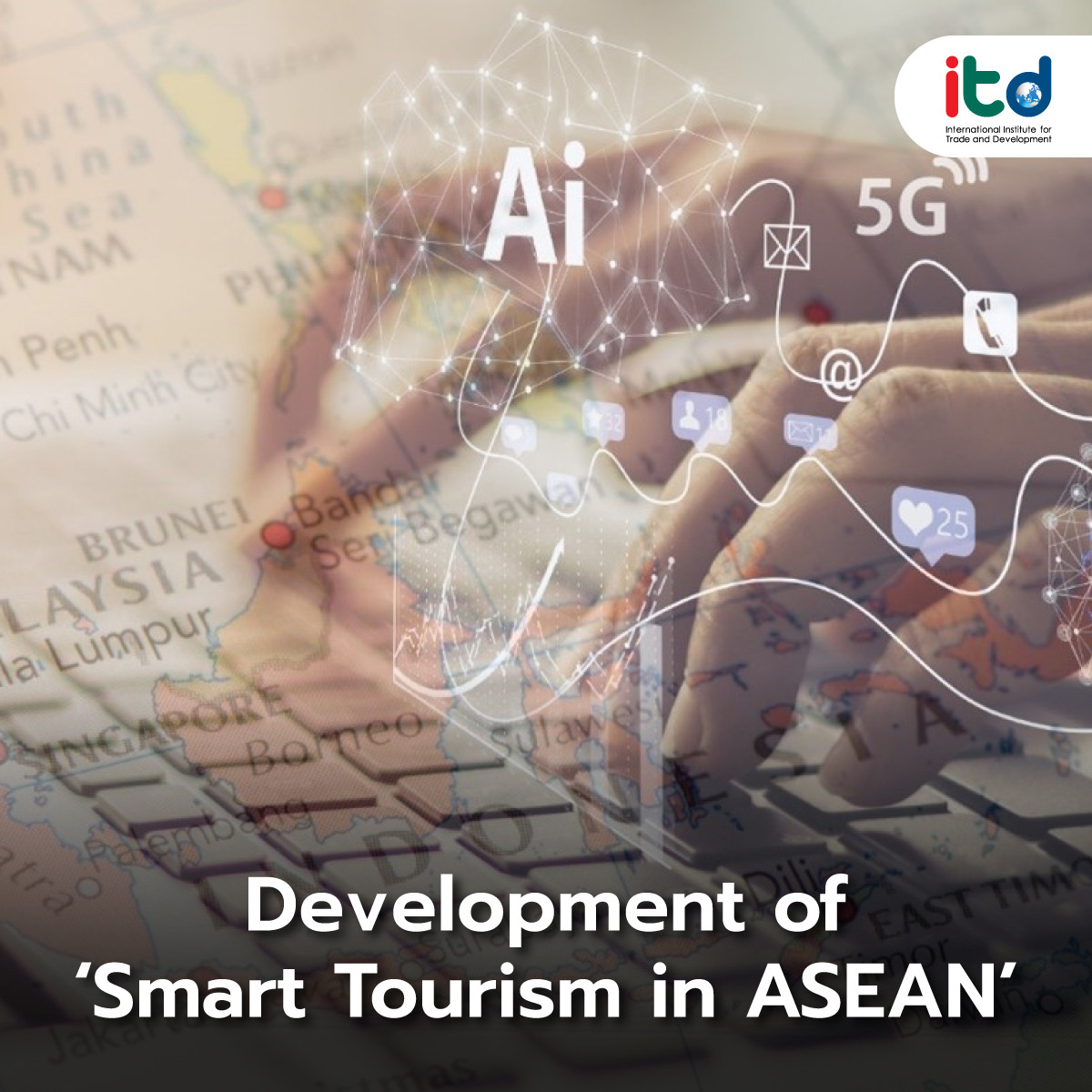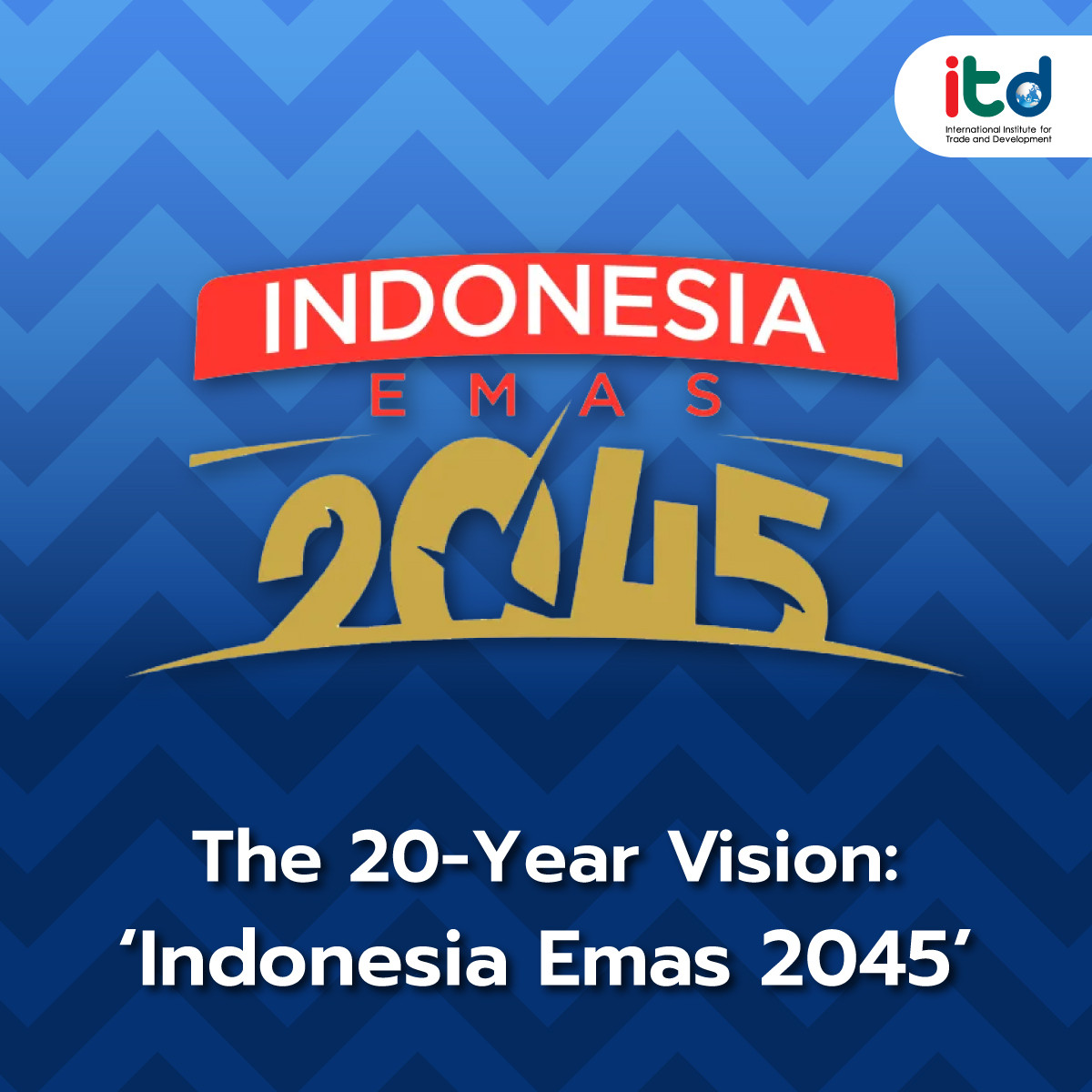About Documents
Tourism plays a significant role in the ASEAN economy, contributing up to 12% of the region’s overall GDP, according to UNWTO (2022). Following the Covid-19 crisis in 2020, global international tourist receipts dropped by over 72%. The Asia and Pacific region was the most affected, with ASEAN experiencing a revenue decline of up to 75%. As the situation improved, tourism began to recover, and ASEAN was one of the regions that rebounded quickly. This positive sign demonstrates ASEAN’s adaptability.
Efforts to recover after the Covid-19 situation will focus on building sustainability, resilience, and advancing the tourism sector. Policies promoting the adoption of digital technology to expand tourism from traditional tourism to e-tourism, Tourism 4.0, and ultimately, smart tourism have been proposed to achieve sustainable goals.
Many ASEAN countries have policies and strategies for incorporating digital technology into tourism development. For example, Indonesia has a strategic plan focusing on developing Big Data and AI to help analyze travel patterns. Vietnam emphasizes the application of technology to develop a smart tourism ecosystem and support connections between the government, businesses, and tourists. Thailand has its Third National Tourism Development Plan, which promotes the use of digital tools to enhance adaptability and digital transformation and leverages technology and innovation for efficiently manage tourists.
However, the digital transition varies between countries. Reducing the digital gap and creating smart tourism is crucial. Research by the Asian Development Bank on Smart Tourism Ecosystem Development Readiness in Southeast Asia indicates that a smart tourism ecosystem means a tourism system that uses advanced technology to enhance the competitiveness of destinations. This is achieved by improving the tourism experience to promote business and innovation and by increasing sustainability through optimizing resources.
Currently, countries in Southeast Asia still face obstacles in terms of funding for building ICT infrastructure and limitations in digital skills. There is also a digital divide between urban and rural areas, as well as issues related to digital policies and laws, such as cybersecurity and data privacy.
To address these obstacles, it is proposed that each country in Southeast Asia allocate more resources to attract investment in developing ICT infrastructure and promote training. Additionally, they should use regional cooperation platforms to exchange relevant knowledge and experiences to improve the legal and policy environment of the smart tourism ecosystem.
Compared to other ASEAN countries, Thailand still has an advantage in smart tourism in terms of competitiveness, legal environment, internet access, internet speed, and the availability of digital personnel. However, there are still gaps and obstacles that Thailand needs to continuously address to fully achieve smart tourism. Achieving this will create economic opportunities, employment, investment, and sustainable revenue growth for the country.
Author:
Ms. Natjaree Petruang
Researcher
International Institute for Trade and Development (Public Organization)
www.itd.or.th
Publication: Bangkok BIZ Newspaper
Section: First Section/World Beat
Volume: 37 Issue: 12641
Date: Wednesday, May 15, 2024
Page: 8 (left)
Column: “Asean Insight”





